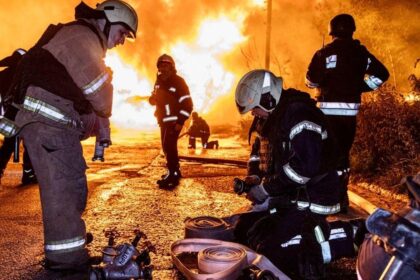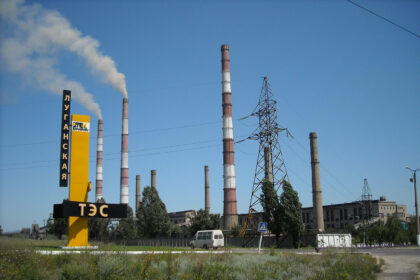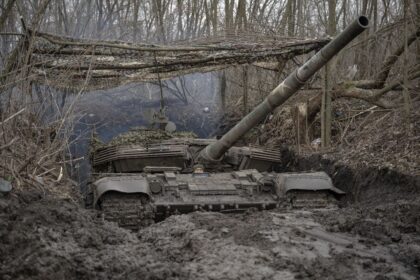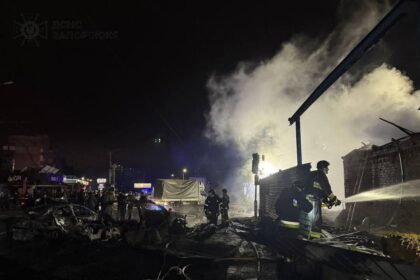**Deadly Drone Strike Hits Russian City**
A devastating drone strike carried out by Ukraine has left three people dead and 35 others injured in the city of Izhevsk, Russia. The attack targeted a factory in the region, with regional governor Alexander Brechalov confirming the incident on his Telegram channel.
The Ukrainian security official who spoke to Reuters claimed that at least two long-range drones operated by the Security Service of Ukraine struck the Kupol plant, which is responsible for manufacturing drones and air defense systems. According to this official, a fire broke out as a result of the strike, with videos showing a column of black smoke billowing into the sky from the site.
While Reuters could not independently verify the claim, the incident highlights the escalating tensions between Ukraine and Russia in the ongoing conflict. The Kupol plant is part of the state-owned Almaz-Antey defense conglomerate, and Izhevsk is also home to the renowned Kalashnikov defense manufacturing concern.
**Commentary**
The deadly drone strike on the Russian factory serves as a stark reminder of the risks and consequences of military action in the ongoing conflict between Ukraine and Russia. The attack has raised questions about the tactics employed by both sides, particularly given the increasing use of drones in warfare.
“This incident demonstrates the growing sophistication and brazenness of Ukrainian military operations,” says Dr. Maria Rodriguez, an expert on international security issues. “While it is understandable that Ukraine seeks to defend itself against Russian aggression, the use of deadly force must be carefully weighed against the potential risks to civilians.”
**Analysis**
The strike on the Kupol plant highlights the complex and multifaceted nature of modern warfare. The increasing reliance on drones has transformed the battlefield, making it more difficult for military commanders to predict and prepare for incoming attacks.
“The use of drones in this conflict underscores the need for all parties involved to prioritize civilian safety and adopt measures to minimize harm,” says Dr. Rodriguez. “As tensions continue to rise, we must remain vigilant in our efforts to protect human life and prevent further escalation.”
Read More @ www.reuters.com












